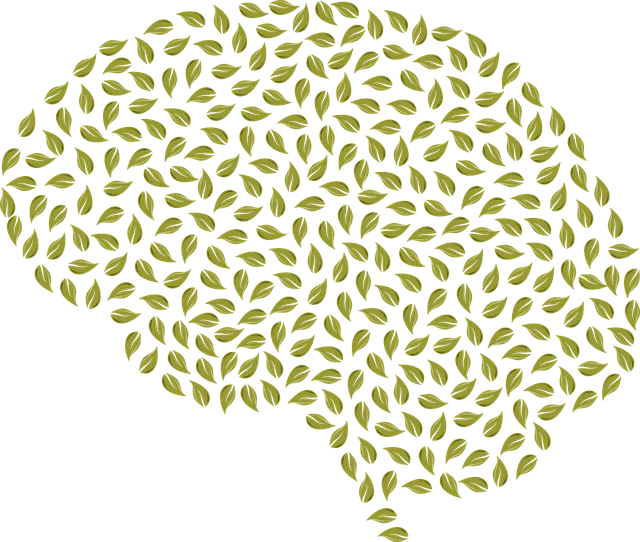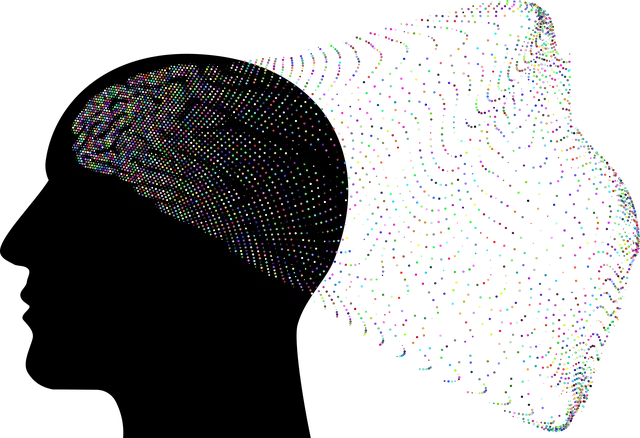Lone Tree Kaiser's analysis of mental health data from surveys, clinical records, and EHRs guides the development of Resilience Building initiatives and Burnout Prevention Strategies for Healthcare Providers. Using advanced techniques like Compassion Cultivation Practices (CCP) and Crisis Intervention Guidance (CIG), they personalize care, improving outcomes such as significant anxiety reductions through cognitive-behavioral therapy. This ethical approach to data analysis ensures tailored, effective mental health services while protecting patient confidentiality.
Mental health data analysis has become a powerful tool for understanding and improving patient outcomes, with organizations like Lone Tree Kaiser leading the way. This article explores the intricacies of analyzing and interpreting mental health data, focusing on techniques tailored to Lone Tree Kaiser’s programs. We delve into data collection sources, from patient records to surveys, and discuss advanced analysis methods. Furthermore, we examine real-world applications at Lone Tree Kaiser, highlighting how insights drive better care. Finally, ethical considerations and future trends in this rapidly evolving field are addressed.
- Understanding Mental Health Data: Collection and Sources
- Data Analysis Techniques for Mental Health Programs
- Interpreting Results: Insights and Applications at Lone Tree Kaiser
- Ethical Considerations and Future Directions in Mental Health Data Analysis
Understanding Mental Health Data: Collection and Sources

Mental health data is a vital resource for understanding and improving the well-being of individuals and communities. At Lone Tree Kaiser mental health programs, this data is meticulously collected from various sources, offering insights into the scope and nature of mental health issues. Surveys, clinical records, and online platforms are common repositories, each providing unique perspectives on the population’s mental state. For instance, electronic health records (EHRs) capture detailed information about patient interactions, allowing for trends in specific conditions or treatment responses to be identified.
The analysis of such data is not merely numerical; it involves interpreting patterns and connections, often revealing hidden correlations. This process aids in developing effective Resilience Building initiatives and Burnout Prevention Strategies for Healthcare Providers, ensuring a supportive environment for both patients and medical professionals. Furthermore, understanding communication Strategies within these datasets can provide valuable insights into the effectiveness of various interventions and support systems.
Data Analysis Techniques for Mental Health Programs

The analysis of mental health data is a multifaceted process that plays a pivotal role in understanding and enhancing the effectiveness of programs like those offered by Lone Tree Kaiser. This involves employing sophisticated techniques to interpret trends, patterns, and individual responses. One such technique gaining prominence is Compassion Cultivation Practices (CCP), which integrates mindfulness and emotional intelligence into data analysis, fostering a more empathetic understanding of participants’ experiences. By examining changes in self-reported stress levels, emotional regulation skills, and overall well-being over time, mental health professionals can tailor interventions to meet the unique needs of each individual.
Additionally, Crisis Intervention Guidance (CIG) offers valuable tools for analyzing acute mental health events, enabling swift and effective responses. This approach leverages structured assessments and evidence-based strategies to identify risk factors, predict potential crises, and develop proactive management plans. Incorporating Mental Health Awareness into data analysis facilitates the early detection of emerging issues, ensuring timely interventions. These comprehensive methods not only improve program outcomes but also contribute to a more nuanced and personalized mental health care ecosystem.
Interpreting Results: Insights and Applications at Lone Tree Kaiser

At Lone Tree Kaiser, interpreting mental health data goes beyond numbers and statistics; it’s about uncovering valuable insights that can transform lives. Through rigorous analysis of participant outcomes from their diverse programs, healthcare professionals gain a deeper understanding of effective treatment strategies. For instance, evaluating the impact of cognitive-behavioral therapy on anxiety relief reveals significant improvements, offering practical applications for future sessions. By identifying successful interventions, therapists can tailor their approaches to individual needs, fostering empathy building strategies and enhancing overall well-being.
The data also highlights areas requiring further attention, such as depression prevention initiatives. By recognizing patterns and risk factors, Lone Tree Kaiser can adapt its programs to better support at-risk individuals. This evidence-based approach ensures that mental health services remain relevant and effective, ultimately contributing to the improved lives of those seeking help.
Ethical Considerations and Future Directions in Mental Health Data Analysis

As mental health data analysis continues to evolve, ethical considerations become increasingly vital. The interpretation and use of sensitive personal information must adhere to strict privacy guidelines, ensuring the confidentiality and security of patients’ records. With the rise of digital interventions and telemedicine, researchers must address new challenges related to data accessibility and informed consent, especially when dealing with vulnerable populations. Balancing the benefits of data-driven approaches with the potential risks of exploitation or misuse is crucial. For instance, at Lone Tree Kaiser mental health programs, ethical frameworks guide the collection and analysis of patient data, fostering trust and promoting effective treatment outcomes.
Looking ahead, future directions in mental health data analysis offer both opportunities and complexities. The integration of advanced analytics techniques, such as machine learning, can enhance our understanding of complex mental health disorders and personalize treatment plans. This could lead to more targeted interventions for conditions like depression prevention and stress management. Additionally, exploring innovative practices like compassion cultivation can benefit from data-informed insights, allowing for the development of evidence-based programs that foster resilience and well-being. However, these advancements necessitate ongoing discussions on ethical boundaries, ensuring that technological progress serves to improve access to mental health services without compromising individual rights and privacy.
Mental health data analysis is a powerful tool that, when applied thoughtfully, can significantly enhance programs like those at Lone Tree Kaiser. By understanding unique collection sources and employing diverse analysis techniques, valuable insights can be gained to improve patient care. Interpreting these results opens doors to innovative applications, ensuring ethical considerations are paramount. As this field evolves, continued research and exploration will be vital to unlocking the full potential of mental health data analysis, ultimately benefiting individuals within Lone Tree Kaiser and similar institutions worldwide.


